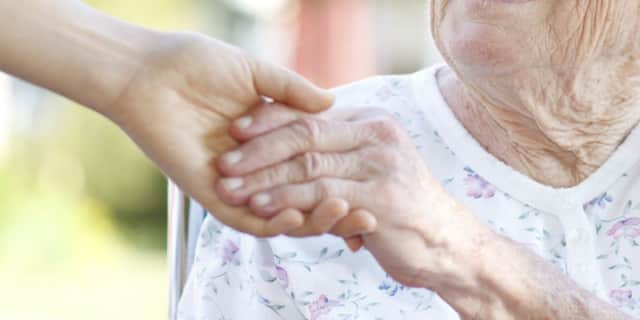Readers' letters


It is a disgrace that thousands of housebound older and disabled people reliant on care in our region have visits from carers who stay for just 15 minutes or less.
These are among the most vulnerable in our society, yet their meals, medication and often personal care are squeezed into a matter of minutes by the majority of councils in the North West, according to an investigation by Granada Reports.
Advertisement
Hide AdAdvertisement
Hide AdThe Care Act was introduced last year to change the way care is provided to those who need it most and ensure it is driven by the person, rather than imposed on them or determined by ever diminishing budgets.
A fundamental part of the Act is the ‘principle of well-being’, which promotes greater dignity and independence by putting the emphasis on those receiving care, their needs and the outcomes they want.
People who feel they are receiving poor care should always challenge the decision. Anyone who struggles to do this themselves can seek help from an independent advocate, which local authorities are legally obliged to appoint.
The Care Act empowers vulnerable people to direct how they receive support and it is important that councils take this into account when deciding care plans, which takes a good deal longer than 15 minutes.
Richard Copson
Disability rights lawyer
Slater and Gordon
environment
Brexit is no excuse
Advertisement
Hide AdAdvertisement
Hide AdI am sure many people were concerned by the recent BBC Panorama broadcast which revealed safety concerns at the Sellafield Nuclear Waste Plant in Cumbria, which stores most of the UK’s nuclear waste.
Any accidental release could have catastrophic consequences across the North West and far wider.
Thankfully, while we are still in the EU, we can rely on stronger standards on issues such as nuclear safety that are vital for protecting health.
Molly Scott-Cato, Green MEP, has written to the EU Commission asking them to investigate whether the Sellafield nuclear site is in breach of an EU directive which sets out basic principles for managing spent fuel and radioactive waste, and to initiate infringement proceedings if there is evidence of a clear breach of the directive.
Advertisement
Hide AdAdvertisement
Hide AdMeanwhile the Greens will be campaigning to ensure the Government does not use Brexit as an excuse to avoid its international responsibilities in a range of areas, including taxation and environmental protection.
Gina Dowding
Green Party
WELFARE
Irony behind dog show
Like Stephen Moss (WEP Letters, September 9), I also believe there should be CCTV in abattoirs. If we need CCTV to ensure high welfare standards, so be it. High welfare should be a price we are all willing to pay for eating meat. But here’s an irony – guess where the World Dog Show is being held in 2019? A country whose citizens love and respect ‘man’s best friend’? Alas, no, it’s a country where not only are dogs killed and eaten, but it is done in horrific ways. I think lobsters being burned alive is cruel. But could you imagine this happening to your pet dog?
I have even heard of unwanted ex-racing greyhounds being sent from Ireland to China for this reason. The methods used for killing these animals, a species often so spoilt in this country, is horrific. How can people be so cruel?
CJK via email